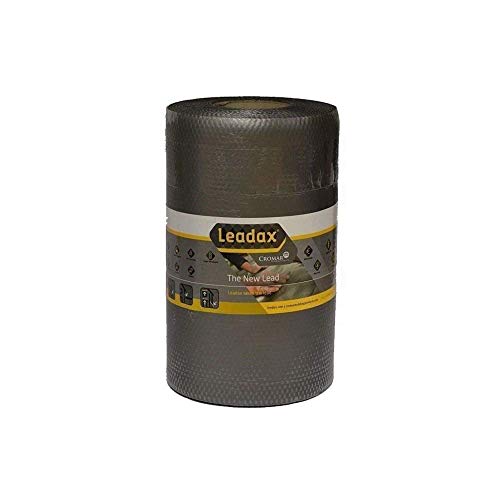Understanding Lead Substitute: What It Is and Why You Need It
Defining Lead Substitute
Lead substitute refers to a fuel additive designed to replace lead in petrol, primarily used in older model cars that were originally built to use leaded fuel. Lead was previously added to petrol to enhance performance and reduce engine wear, but it has been banned due to environmental and health concerns. Lead substitutes are formulated to provide similar benefits without the toxic effects associated with lead. This means that if your car requires leaded petrol, a lead substitute allows you to keep your vehicle running smoothly and efficiently without damaging the engine.
The Need for a Lead Substitute
Using lead substitute in modern fuels is essential for older vehicles, especially those manufactured before the mid-1990s. These vehicles were designed with engines that might suffer from increased wear and tear if lead is not present. By using a lead substitute, we can help protect critical engine components, ensuring the longevity and reliability of our vehicles while adhering to environmental regulations.
Key Benefits of Using Lead Substitute: Enhancing Performance and Safety
Promoting Engine Longevity
One of the primary benefits of using a lead substitute is that it helps prolong the life of engine components. The substitute provides a protective layer to valve seats, preventing them from becoming recessed, which is a common issue in engines that run on unleaded petrol. This ensures that we can enjoy our classic cars or vintage vehicles without worrying about expensive repairs.
Improving Performance
With the right lead substitute, we may notice a marked improvement in overall engine performance. The additive helps maintain the combustion process, allowing the engine to run smoother and more powerfully, ultimately enhancing our driving experience. For those passionate about their classic cars, this performance boost can breathe new life into older vehicles.
Enhancing Fuel Efficiency
Using a lead substitute not only protects the engine but may also contribute to better fuel efficiency. The improved combustion due to the additive can lead to more efficient use of fuel, which means we may spend less time at the petrol pump while enjoying the same level of performance from our vehicle.
Choosing the Right Lead Substitute: Factors to Consider
Compatibility with Your Vehicle
When selecting a lead substitute, the first consideration should be compatibility with our vehicle’s engine. Some vehicles require specific additives to function optimally, so checking the manufacturer’s recommendations is key. It ensures that we are choosing a product designed to work well with our engine type.
Additive Formulation
Different lead substitutes have varying formulations. While looking for a product, we should investigate its components. Some may offer additional benefits, such as helping to clean the fuel system or boost octane levels. Selecting a high-quality product can lead to better performance and overall satisfaction.
Ease of Use
Another factor to consider is the ease of use of the lead substitute. Many products are designed to be user-friendly, often available in convenient packaging that makes it simple to add to our fuel tank. Choosing a product that doesn’t complicate our refuelling routine allows us to stick to regular maintenance without added hassle.
How to Use Lead Substitute Effectively: A Step-by-Step Guide
Preparation Before Addition
Before adding lead substitute to our fuel, it’s crucial to read the product instructions carefully. Knowing the correct dosage based on our vehicle’s engine capacity ensures we achieve optimum results. On average, most substitutes recommend adding the product at a ratio of 1 part additive to a certain volume of petrol.
Mixing the Additive with Fuel
After preparing, we can simply add the lead substitute to the fuel tank during refuelling. It’s often advisable to fill the tank to minimize the concentration of the additive. This helps ensure that the fuel and lead substitute mix thoroughly, allowing for even distribution through the fuel system.
Regular Maintenance Checks
Using lead substitute should be part of an ongoing maintenance routine. Keeping an eye on engine performance and fuel efficiency will help us gauge the effectiveness of the additive. Additionally, checking for any signs of engine wear can inform us if further adjustments to our fuel strategy might be needed.
Frequently Asked Questions About Lead Substitute: Clarifying Common Doubts
Can I Use Lead Substitute in Any Petrol Engine?
No, lead substitutes are specifically formulated for older engines that require leaded petrol. Using it in modern engines that are already designed for unleaded fuel is typically unnecessary and may not provide any additional benefits.
How Often Should I Use Lead Substitute?
The frequency of usage depends on how often we drive and our fuel consumption patterns. Typically, it’s recommended to use lead substitute regularly, especially if we drive classic vehicles regularly, to maintain optimal engine protection and performance.
Are There Any Side Effects of Using Lead Substitute?
When used as directed, lead substitutes are safe and effective. However, we should always follow the recommended dosage to avoid potential issues. It’s also important to consider compatibility with engine oil and other additives to ensure we are not inadvertently causing any issues.

























